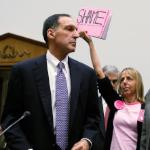What Killed Lehman Brothers?
 The fall of Lehman Brothers is a reminder that even the biggest characters on the Wall Street stage are susceptible to greed, envy and hubris.
The fall of Lehman Brothers is a reminder that even the biggest characters on the Wall Street stage are susceptible to greed, envy and hubris.
In her book, Devil’s Casino, investigative journalist Vicky Ward takes the reader deep into the personalities and politics behind the rise and fall of modern-day Lehman Brothers. With a journalistic style honed as a Vanity Fair and Huffington Post columnist, Ms. Ward engages readers who enjoy fall from grace spectacles, or perhaps more bluntly, rubberneckers who love a good car wreck. But Ms. Ward never really hits the core of what went wrong. How did the firm expose itself to so much risk? Who is responsible? Could the government have saved Lehman and, if so, would that have been a good thing? And the fundamental question: Why did 158-year old Lehman Brothers fail while other firms did not? Ms. Ward tantalizes the reader with glimpses of answers but what ultimately emerges is a tale of politics and betrayal that can be found in any organization and certainly can be found in any Wall Street firm – past or present.
Devil’s Casino perhaps was never intended as an archetypal account of a colossal failure on Wall Street… but it could have been. The recipe is certainly there. The cast of characters is straight out of a Shakespearean tragedy, set against the backdrop of a financial hurricane resulting in a massive shift of power and accountability (from private to public) with Lehman at the center of the tempest. Ms. Ward successfully gained access to all the key players when their memories were fresh and at a point when enough information had been made public and enough time had passed to digest it. So what conclusions is the reader to draw? Did the firm practice accounting fraud? Did the mortgage trading desk make risk decisions in a vacuum? Did CEO Dick Fuld and his executive committee understand the risks the firm was taking? Were financial motivations and rewards of bankers and traders in line with the objectives of the firm and if not, why not? None of these issues is addressed in any meaningful detail. Rather, Ms. Ward focuses her narrative on four friends – Joe Gregory, Chris Petit, Steve Lessing and Tom Tucker. The Ponderosa Boys, as they were known, were the “good guys” of Wall Street when they started out, corrupted only later by greed and power. Really? On Wall Street?
Taken from the author’s favorable tone, Petit is the book’s hero. Had he not been betrayed by his friend, Gregory, he may have saved Lehman. This premise seems a bit implausible given his death 11 years before the firm’s collapse but the storyline is filled with details of lust, cheating and even a séance. A great number of pages are spent pillorying Gregory, Lehman President and Fuld’s right hand man, as the source of the personal betrayals and for placing loyalty to the firm over competence. Few people would disagree with the way Gregory is characterized in the book but is it fair to blame the collapse on his political dealings? Probably not. Relying on what feels to the reader as a handful of anonymous sources the book occasionally is prone to sordid gossip and personal revenge.
Oddly, Ms. Ward does not direct the fire hose on Fuld, who largely remains in the shadows. Yet, Fuld’s fixation with his White Whale, Goldman Sachs, was probably the most powerful force behind the firm’s demise. This obsession, deeply embedded in the Lehman underdog culture cultivated by Fuld during his 14 year tenure at the helm, led the firm to take risks it could not afford and to grow its balance sheet well beyond a manageable size. Lehman failed not because it was too big to fail, but too big to survive. Ironically, the one man who may have had the power to save Lehman (by providing potential buyers with loss guarantees) was Treasury Secretary and former White Whale CEO Henry Paulson. Sizing up the firm’s demise and placing much of the blame squarely on Fuld, Paulson concludes, “It’s a tragedy. It is not healthy for a CEO to stay too long… it becomes increasingly difficult for a management team to challenge the boss’s decision or to change longstanding policies and practices.” However, organizations that follow their leaders for many years often thrive – Apple, Microsoft and Southwest Airlines come to mind – but only if their leaders don’t fall prey to drinking their own Kool Aid.
Devil’s Casino is Ms. Ward’s first non-fiction book and it is an entertaining and energetic – at times riveting- read. It lacks, however, the consistent nail biting intensity of Den of Thieves or the detailed story-telling narrative of The Big Short, exhaustively researched accounts on what can, will and did go wrong on Wall Street. Nor does Devil’s Casino contain the pieces of a Harvard Business School case study, neglecting to examine the decision making processes and organizational behavior of Lehman Brothers that might have made the book a more definitive contribution to the Wall Street genre. But if there is one true lesson from Devil’s Casino it is that human frailties – greed, envy and hubris – are permanent flaws of the characters on the Wall Street stage. We have seen this tragedy before and we will see it again. Ms. Ward will have ample opportunity to write a sequel.